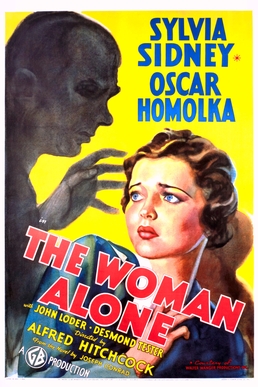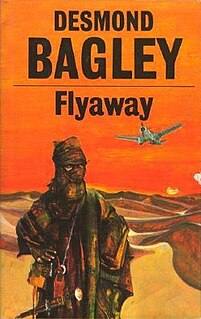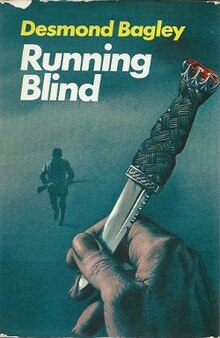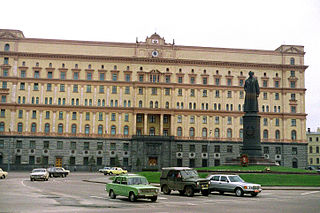Espionage or spying is the act of obtaining secret or confidential information without the permission of the holder of the information. Spies help agencies uncover secret information. Any individual or spy ring, in the service of a government, company or independent operation, can commit espionage. The practice is clandestine, as it is by definition unwelcome. In some circumstances it may be a legal tool of law enforcement and in others it may be illegal and punishable by law. Espionage is a method of intelligence gathering which includes information gathering from non-disclosed sources.

Harold Adrian Russell "Kim" Philby was a British intelligence officer and a double agent for the Soviet Union. In 1963, He was revealed to be a member of the Cambridge Five, a spy ring which passed information to the Soviet Union during World War II and in the early stages of the Cold War. Of the five, Philby is believed to have been most successful in providing secret information to the Soviets.
Spy fiction, a genre of literature involving espionage as an important context or plot device, emerged in the early twentieth century, inspired by rivalries and intrigues between the major powers, and the establishment of modern intelligence agencies. It was given new impetus by the development of fascism and communism in the lead-up to World War II, continued to develop during the Cold War, and received a fresh impetus from the emergence of rogue states, international criminal organizations, global terrorist networks, maritime piracy and technological sabotage and espionage as potent threats to Western societies. As a genre, spy fiction is thematically related to the novel of adventure, the thriller and the politico-military thriller.

Q is a fictional character in the James Bond films and film novelisations. Q, like M, is a job title rather than a name. He is the head of Q Branch, the fictional research and development division of the British Secret Service. The use of letters as pseudonyms for senior officers in the British Secret Intelligence Service was started by its first director Captain Sir Mansfield George Smith-Cumming (1859-1923) who signed himself with a C written in green ink.

The Spy Who Came in from the Cold is a 1963 Cold War spy novel by the British author John le Carré. It depicts Alec Leamas, a British agent, being sent to East Germany as a faux defector to sow disinformation about a powerful East German intelligence officer.

The Cambridge Spy Ring was a ring of spies in the United Kingdom, which passed information to the Soviet Union during World War II and was active from the 1930s until at least into the early 1950s. None were ever prosecuted for spying. The number and membership of the ring emerged slowly from the 1950s onwards. As far as the general public was concerned, this started with the sudden flight of Donald Maclean and Guy Burgess to the Soviet Union in 1951. Suspicion immediately fell on Kim Philby, but he did not defect until 1963. Anthony Blunt and John Cairncross, the last two of the group, confessed to British intelligence but this remained a secret for many years, until 1979 for Blunt and 1990 for Cairncross. In time the Cambridge Four evolved to become the Cambridge Five. In the innermost circles of the KGB, they were supposedly dubbed as the Magnificent Five.

Sabotage, also released as The Woman Alone, is a 1936 British espionage thriller film directed by Alfred Hitchcock and starring Sylvia Sidney, Oskar Homolka, and John Loder. It is loosely based on Joseph Conrad's novel The Secret Agent, about a woman who discovers that her husband, a London cinema owner, is a terrorist agent. Sabotage should not be confused with Hitchcock's film Secret Agent, also released in 1936, but based on the stories of W. Somerset Maugham. Also should not be confused with Hitchcock's film Saboteur (1942) which includes the iconic fall from the torch of the Statue of Liberty which presaged the Mount Rushmore scene in North by Northwest.
John Franklin Broxholme was an English thriller writer who published fifteen novels in a little over twenty years (1971–1993) using the pen name of Duncan Kyle.

George Blake is a former British spy who worked as a double agent for the Soviet Union. He became a Communist and decided to work for the KGB while a prisoner during the Korean War. Discovered in 1961 and sentenced to 42 years in prison, he escaped from Wormwood Scrubs prison in 1966 and fled to the Soviet Union. He was not one of the Cambridge Five spies, although he associated with Donald Maclean and Kim Philby after reaching the Soviet Union.
Rupert William Simon Allason is a former Conservative Party politician in the United Kingdom and professional author. He was the Member of Parliament (MP) for Torbay in Devon, from 1987 to 1997. He writes books and articles on the subject of espionage under the pen name Nigel West.

Masud Rana is a fictional character created in 1966 by writer Qazi Anwar Hussain, who featured him in over 400 novels. Hussain created the adult spy-thriller series Masud Rana, at first modelled after James Bond, but expanded widely. So far 460 books have been published in this series which has gained a lot of popularity in Bangladesh. Written from the 1960s and continuing to present day, books are published almost every month by Sheba Prokashoni, one of the most popular publishing house of Bangladesh. Although Qazi Anwar Hussain started the series, it is an open secret that nowadays he doesn't write it any more. A group of ghostwriters are employed to produce all the new Masud Rana novels.

A Dandy in Aspic is a 1968 neo-noir Technicolor and Panavision British spy film, directed by Anthony Mann, based on the 1966 novel of the same name by Derek Marlowe and starring Laurence Harvey, Tom Courtenay, and Mia Farrow. It was Mann's final film.

The Enemy is a first person narrative espionage thriller novel by English author Desmond Bagley, first published in 1977. In 2001 it was made into a movie, starring Roger Moore, Luke Perry and Olivia d'Abo.

Flyaway is a first person narrative thriller novel by English author Desmond Bagley, first published in 1978. It introduces Max Stafford as protagonist, who would later appear in Bagley's novel, Windfall.

The Freedom Trap is a novel written by English author Desmond Bagley, and was first published in 1971 with a cover by Norman Weaver. It was loosely based on the escape of George Blake from prison five years before. In 1973 it was made into a film entitled The Mackintosh Man, starring Paul Newman.
Running Blind may refer to:

Codename: Kyril is a 208-minute British serial, first broadcast in 1988. It is a Cold War espionage drama, starring Ian Charleson, Edward Woodward, Denholm Elliott, Joss Ackland, and Richard E. Grant. The spy thriller was directed by Ian Sharp, and the screenplay was written by John Hopkins, from a 1981 novel by John Trenhaile. The fairly complex plot concerns a known Russian spy ("Kyril") sent to the UK under falsely reported pretenses in order to hopefully indirectly spark an unknown mole in the KGB to reveal himself; the endeavor eventually has repercussions which none of the initial players could have predicted.

















